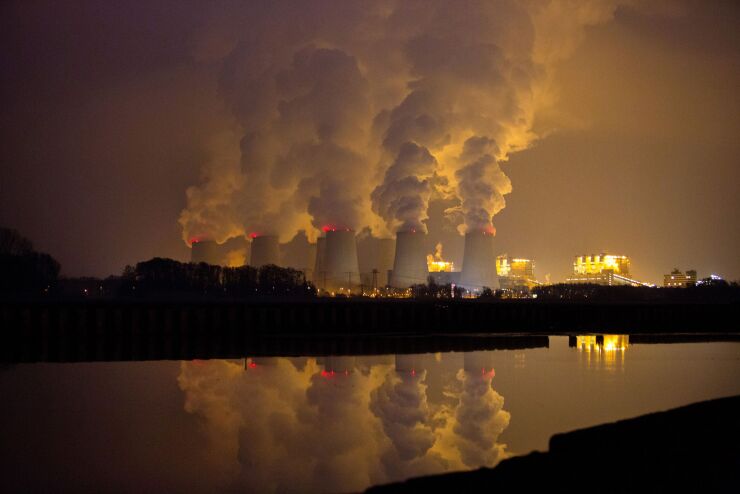ESG is dividing investment trends across the globe.
Almost half of North America's biggest institutional and wholesale investors worry they'll face legal consequences if they consider environmental and social factors, as the political backlash against ESG broadens, according to a fresh global survey of firms overseeing $27 trillion.
In Europe and the Asia Pacific region, meanwhile, investors are more concerned about the ramifications of failing to address climate change, Robeco said in its annual survey of the industry, published on Tuesday.

"As it now seems likely that ESG investing will be an election issue in the U.S., investors there may have to find a way to factor this into their investment approach, particularly if they believe that climate change has financial implications," the report said. But in Europe, sustainable investing is judged to be a fiduciary duty that's in the "best interests" of stakeholders, it said.
ESG has emerged as a flash point in US politics that's dividing red and blue states. On Monday, Joe Biden used the first veto of his presidency to halt Republican efforts to prevent pension providers from taking ESG risks into account. That followed a campaign led by Florida Governor Ron DeSantis to
Despite GOP attacks on ESG, the world's biggest investors say they're preparing to put more pressure on portfolio companies to cut emissions, the Robeco survey found.
At the same time, fewer asset owners are divesting. Investors with net zero pledges that plan to exit oil and gas companies fell to 14% from 17% in the 2022 survey, Robeco said. The number of firms stating they plan to use engagement strategies to pressure companies to move away from fossil fuels rose.
"The challenging energy markets of 2022 have triggered higher short-term exposure to oil and gas," Lucian Peppelenbos, climate strategist at Robeco, wrote in the report. "Still, we clearly see that investors are determined to follow through on their decarbonization goals. The survey indicates that in the coming years, investors will enhance the adoption of climate benchmarks and divestment from high-carbon assets."
Investors are also increasingly integrating biodiversity into their policies, and trying to take the social consequences of environmental strategies into account, the survey found. Biodiversity will become a significant investment factor in the next two years for almost half of those surveyed, up from 35% in 2022, Robeco said. Twice as many investors said they'll focus on ensuring the transition to a fossil-free future doesn't adversely hit developing countries.





